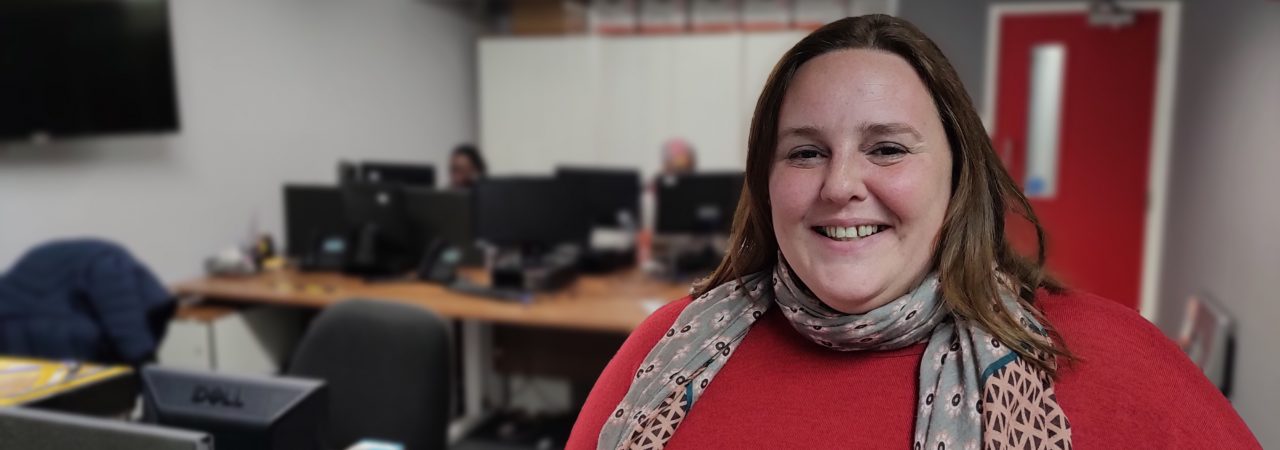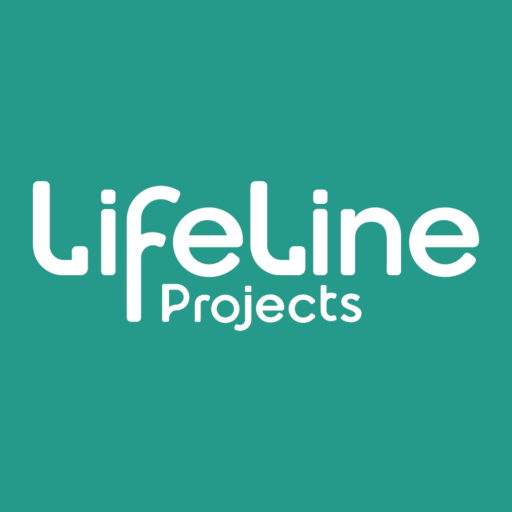We’re excited to welcome Ruth to the LifeLine team, where she’ll be guiding our youth work and the SW!TCH programme as our new Head of Young People’s Services.
We hope you enjoy getting to know Ruth as much as we did!
What's your role at LifeLine?

I’m the new Head of Young Peoples Service’s at LifeLine. This means I’m responsible for overseeing, coordinating, and generally setting the direction of the youth work we do as an organisation. This includes our mentoring programmes, all our positive activities, and any other work we do with young people. It also involves some looking to the future and thinking about the various ways we can develop our range of existing programmes further.
What did you do before coming to LifeLine?

I guess youth work has been a continuous theme in my career—working with young women in particular—ever since my first paid job, setting up and running a youth club up in Bolton. Then I moved down south, working with a women’s organisation—where I helped young parents and girls that had been excluded from education—and then managing a group of women’s centres in London. I started to move into working with offenders at this point, ending up setting up a youth club in HMP Bronzefield—the largest women’s prison in Europe. It was very popular, but it was quite hard to manage due to the constant prisoner turnover.
I also spent some time managing the policy and research team for England, Wales and Northern Ireland for a national education charity—particularly looking at how parents can be more engaged with supporting formal education. And, most recently, I helped run an organisation that supported teenage parents. We would employ young parents to go into schools to run peer mentoring workshops, whilst at the same time supporting them to develop their career skills.
I’ve always done a lot of volunteering related to youth work in my own time as well. When I was about 13 or so, I was volunteering with my local church, helping out with the children’s work there. A couple of years later, at 16, I started up my own youth group—the Amazons—for 13-14 year old girls that would meet weekly and it basically all spiralled on from there.
Later on, at university, I was working to try and encourage young people from lower socio-economic backgrounds to go to university—so we held summer camps at the university for them and would go into primary schools to delivering fun activities and hopefully raising their aspirations. I still volunteer now—at the moment, I’m assistant coach for my daughter’s U14 football team.
What was your first day at LifeLine like?

It was very welcoming, although quiet, as most staff were not in on my first day. However, the following day, I got to meet with the whole youth team, as well as the rest of the LifeLine team. There’s a family feeling, as well as this real positive energy that runs through the office, and with the youth team, you really can feel that drive and passion to get out there with the young people and make a difference.
What's your proudest moment?

There’s two, quite different, things that come to mind.
First, there was a big policy and research project that I was leading on, looking at developing a framework for parental engagement. It was a really important piece of work, and we got a lot of buy-in from stakeholders across the board, and even the Department of Education got involved as well. So, yeah, it was a lot of hard work, but it had a great result and I’m definitely proud of what we managed to achieve there.
The other was back from when I was just getting started in youth work. There was a young woman who was living nearby, about 18 or so, with no immediate family in the area. I brought her in to volunteer with the organisation I was working for, to give her that first work experience as well as make some contacts. She was quite the sporty type—was always helping out with the sports activities we ran—and I helped her to get some funding to do a personal trainer certification. English wasn’t her first language, so I helped out with her studying, with the language and helping her to understand the course content. She worked hard and passed, became a qualified personal trainer, and it really changed her life. She started working at the local gym, and then went off to university to study sports management, and really made a whole career for herself out of it. I don’t think I’d really considered it ending up like that at the time—I just saw her and how she needed help and did what I could for her—but I’m so proud of her and what she achieved and that I could be a part of her journey.
What do you like most about LifeLine?

The big thing that drew me to LifeLine’s youth work was the focus on working with young people for the long term. One of the big challenges I’ve had with youth work is what happens when a piece of funding stops—you just have to leave that particular group behind and move on to wherever the next funding takes you. And that’s been a massive frustration in my career, because you can see that these young people need that ongoing support. So, I can really get behind the model that LifeLine has for that continued support for young people. And I can see it’s really a part of the DNA of everyone on the team too—they truly care about the young people they’re working with, and, even when their time mentoring someone has come to an end, they’re still available to provide support, and just generally keep in touch and invite them for more activities.
I think it’s amazing, just something really special, because these young people can be passed between all these different services, and they just end up going numb to it all. The consistency is something that’s really missing from youth work—it can take a long time for them to build trust and open up to someone, and if then they can’t see that person anymore because the funding’s ended, it can be really hard on them and harden them to future relationships as well. So, even if the intensive part of the programme is done with, having someone still there they can reach out to if they need to is so important.
What words would you use to describe yourself?

I would say ‘compassionate’, ‘curious’—I really enjoy learning—and, I think, ‘optimistic’.
What words would your friends use to describe you?

Oh, maybe ‘loyal’? Or, well, just ‘a good friend’, I hope! Some might say I’m funny… some might not, I don’t know!
What's something a lot of people don't know about you?

I don’t play at the moment, but my main sport has always been handball—which is not that popular over here, I guess. I’ve played since I was eight, and in my teens, I was selected to join a state academy programme, where we got coached by the men’s national team coach for a bit.
What do you do in your free time?

Over the last couple of years, I’ve been getting into some amateur dramatics—doing a Christmas pantomime once a year, so not a full-time thing, but it’s been really good fun every time.



